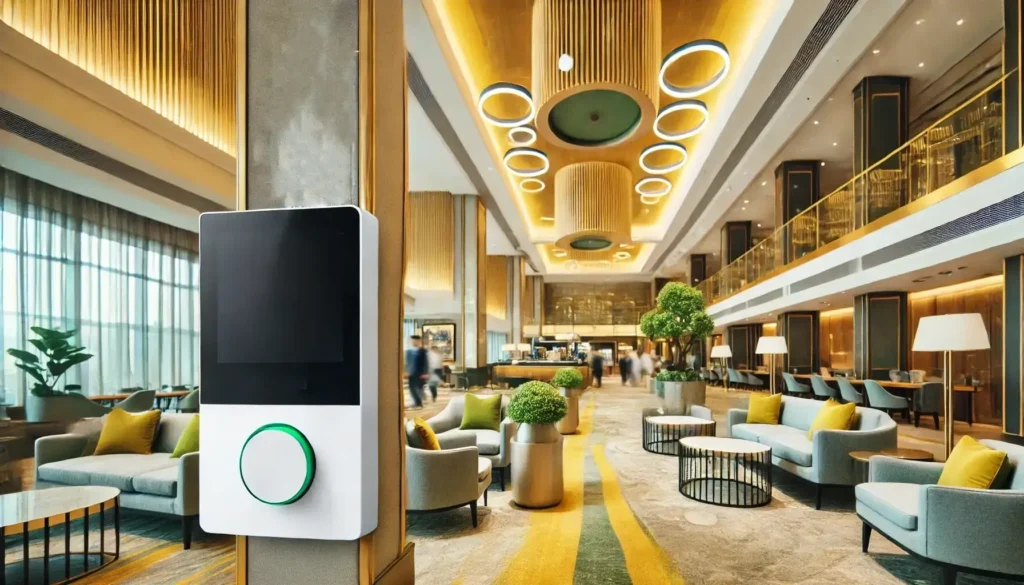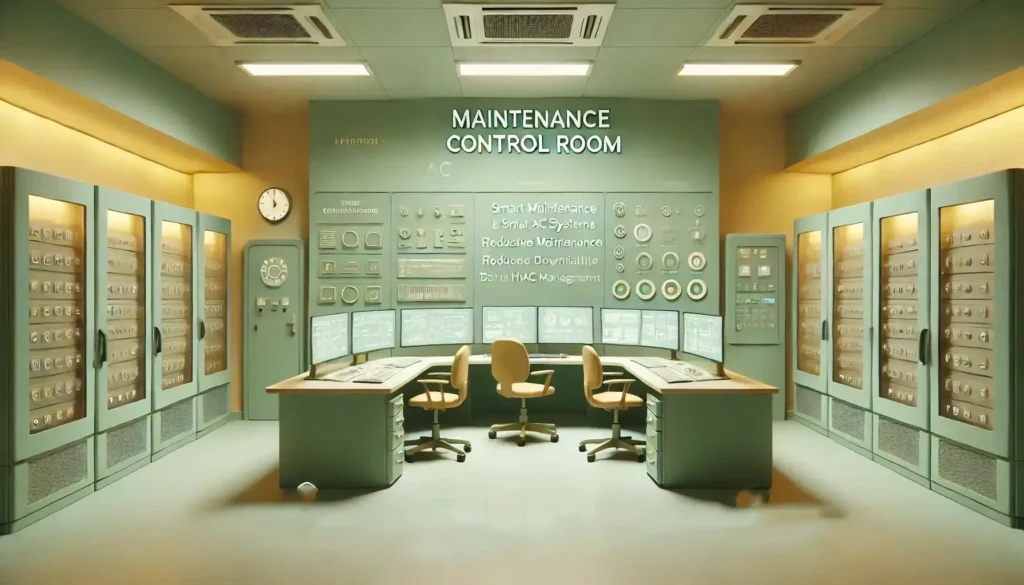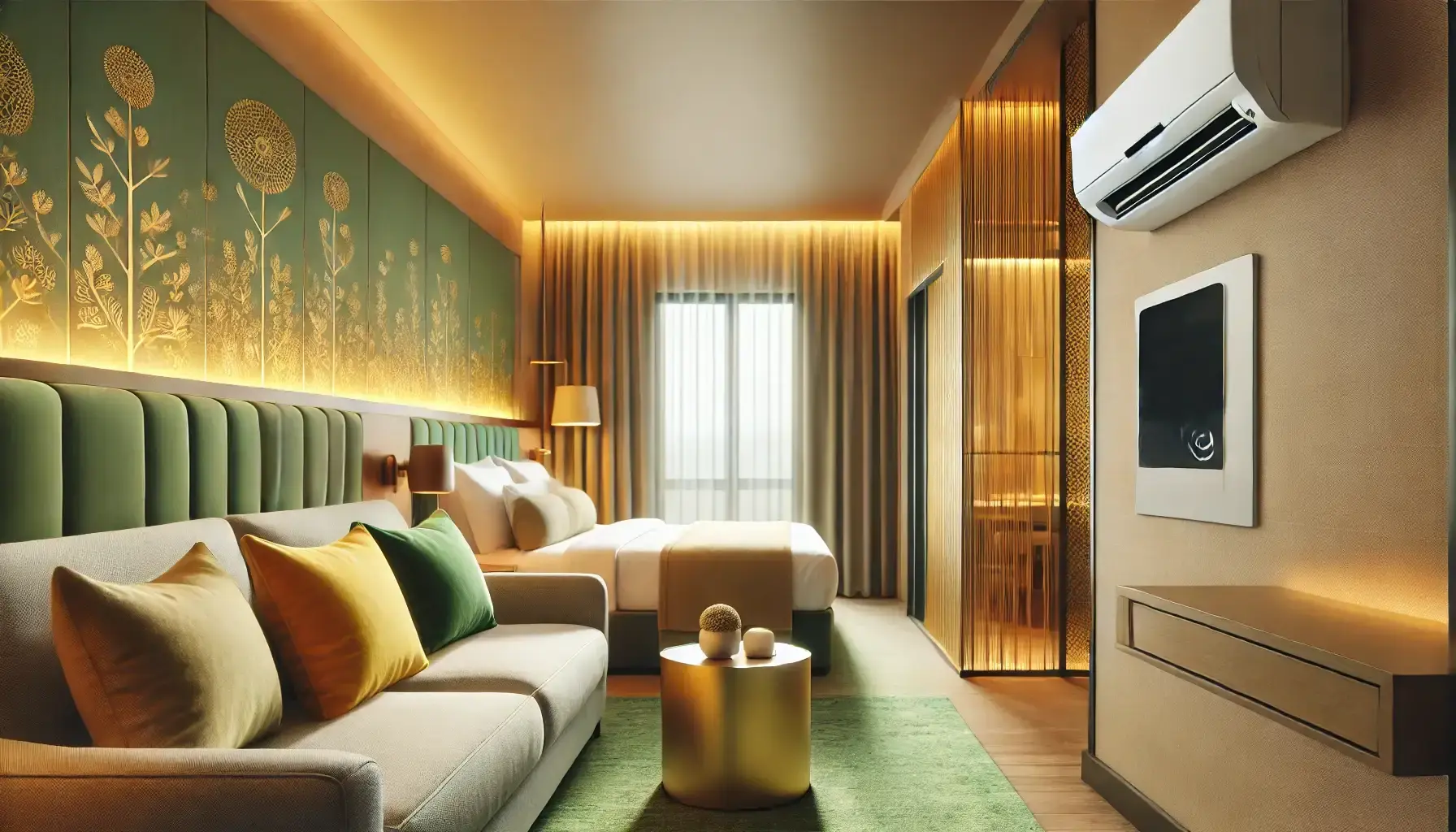Energy costs are a significant concern in the hospitality industry, with HVAC systems alone consuming 40-50% of a hotel’s total energy expenditure. This high energy usage is a major challenge, especially as utility costs continue to rise. Traditional HVAC systems often lack the efficiency and control to optimize energy use, leading to wastage and increased operational costs. A report by the International Energy Agency (IEA) states that hotels can reduce HVAC energy consumption by 20-30% by adopting smart AC controls, translating to substantial savings. For example, a 200-room hotel can save up to $20,000 annually on energy bills with smart AC systems.
Moreover, the demand for enhanced guest comfort and personalized experiences is growing. According to a survey by Deloitte, 79% of travelers prefer hotels with eco-friendly and smart features, indicating a clear market trend towards sustainability and smart technology integration. However, implementing these solutions poses challenges, including the initial investment cost and integration with existing systems.
Challenges Faced by Hotels Without Smart AC Controls
High Energy Costs
Energy costs are a major concern for hotels, with HVAC systems consuming up to 50% of total energy expenditures. This high usage leads to substantial utility bills, significantly affecting the bottom line. Current solutions involve using hotel cards as energy initiators in rooms, manual adjustments to HVAC settings, and basic programmable thermostats. However, these methods need to be revised as they do not optimize energy use effectively and rely heavily on staff intervention, leading to inconsistent and suboptimal energy management.
Inconsistent Guest Comfort
Traditional HVAC systems struggle to maintain consistent room temperatures. Guests often experience discomfort due to temperature fluctuations, which impacts their overall satisfaction and repeat bookings. According to a survey by J.D. Power, temperature control is one of the top five factors affecting hotel guest satisfaction.
Maintenance Issues
Frequent HVAC breakdowns require regular manual maintenance, which can be costly and time-consuming. Many hotels resort to periodic scheduled maintenance and on-call repair services. These reactive measures are insufficient as they do not prevent unexpected breakdowns, leading to room closures and revenue losses.
Environmental Impact
Outdated HVAC systems contribute significantly to greenhouse gas emissions, hindering hotels’ sustainability goals. Many hotels attempt to mitigate this by implementing energy-saving practices, such as turning off systems when rooms are unoccupied. However, without automated controls, these practices rely on manual intervention and are prone to human error, making them less effective in reducing emissions.
Infrastructure Limitations in Older Hotels
Many older hotels lack the necessary infrastructure to control their HVAC systems efficiently. Upgrading these systems often requires significant investment in modernization. Current solutions include partial upgrades or adding standalone smart devices, which are often insufficient due to compatibility issues.

Key Features of Smart AC Systems
Smart AC systems are revolutionizing the hospitality industry by offering advanced features that significantly improve energy efficiency, operational efficiency, and guest comfort. By integrating intelligent scheduling, occupancy sensors, centralized management, and remote access, these systems provide a comprehensive solution to the challenges hotels face today. Hotels that have implemented smart climate control systems report a 15% increase in positive guest feedback related to comfort (Hotel Management Magazine).
One of the core features of smart AC systems is advanced thermostat control. These systems offer intelligent scheduling and temperature presets, allowing hotels to adjust temperatures based on predefined schedules automatically. This ensures that rooms are comfortable when occupied and energy-efficient when vacant, without requiring manual intervention.
Furthermore, smart AC systems integrate with occupancy sensors to detect whether a room is occupied. When a room is empty, the system can automatically reduce heating or cooling, thereby saving energy. Upon the guest’s return, the system restores the preferred temperature settings, ensuring optimal comfort. This combination of intelligent scheduling and occupancy-based adjustments maximizes energy efficiency and enhances guest satisfaction.
Another key feature is the centralized management of split AC units in multiple rooms. Smart AC systems provide a single interface for monitoring and controlling all the split AC units across a hotel. This centralized approach ensures consistent climate control throughout the property and simplifies hotel staff management. Additionally, these systems offer remote access and control capabilities, allowing staff to adjust settings from smart devices or a central system without physically visiting each room. Remote monitoring and control features in smart AC systems reduce the need for on-site staff adjustments, decreasing labor costs by an estimated 15-20%.
Smart AC systems also include maintenance alerts and performance monitoring, which detect issues early and notify staff before they become major problems. By analyzing performance data, hotels can optimize the efficiency and lifespan of their HVAC equipment, reducing downtime and repair costs. Hotels implementing smart AC controls typically see a payback period of 1-2 years due to energy savings and operational efficiencies.

How Sensgreen Enhances HVAC Efficiency in Hotels
Sensgreen offers hotels an efficient way to optimize their HVAC systems, providing intelligent scheduling, occupancy-based adjustments, and centralized management. Their platform enables real-time monitoring and remote access, ensuring optimal temperature settings and quick issue resolution. With integrated maintenance alerts and performance monitoring, Sensgreen enhances operational efficiency and extends HVAC equipment lifespan, reducing downtime and repair costs. By adopting Sensgreen’s smart AC solutions, hotels can significantly lower energy costs, improve guest comfort, and promote sustainability, achieving rapid ROI and long-term benefits for their operations and the environment.



